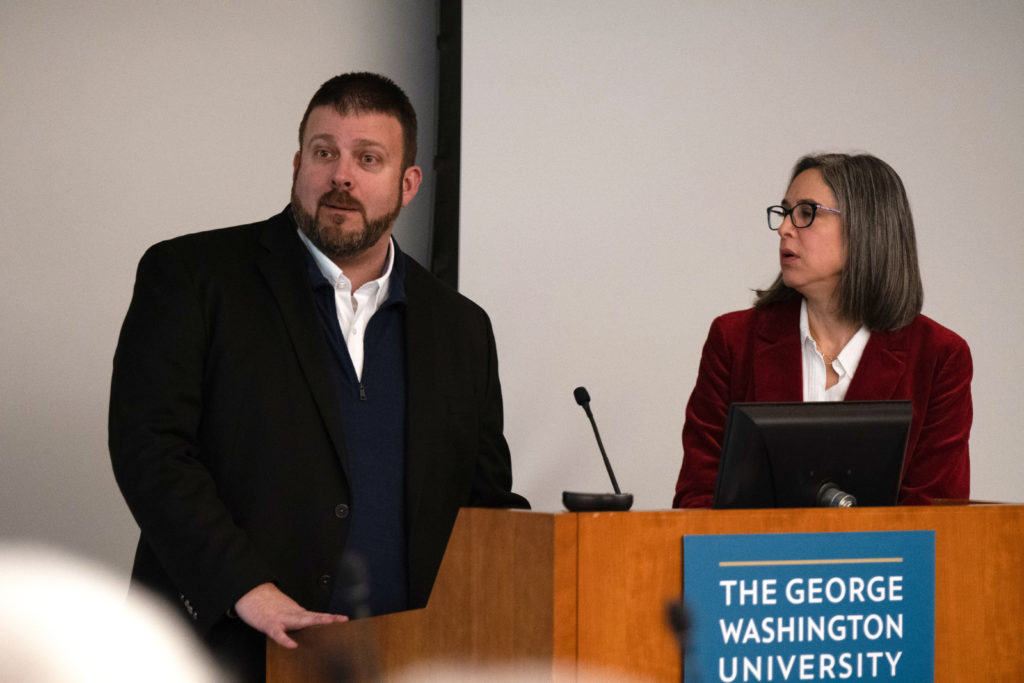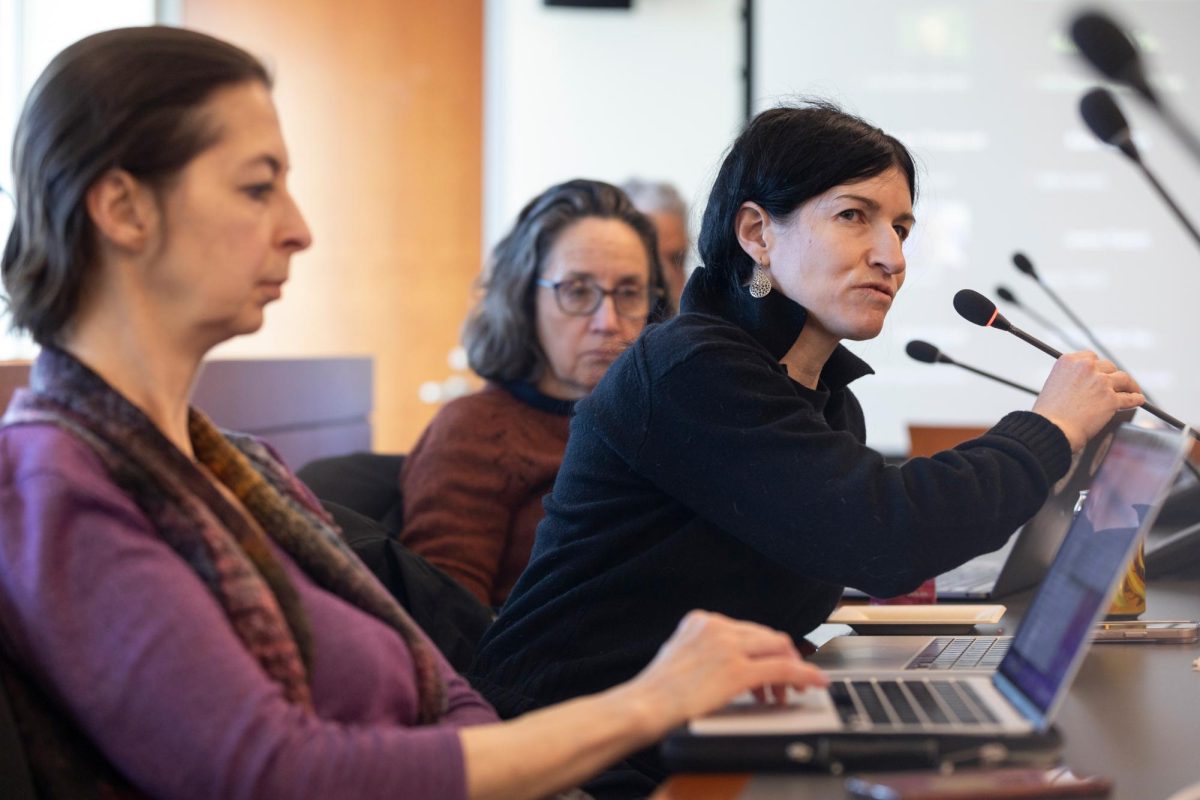Faculty said the decision to move most undergraduate classes to an optional Pass/No Pass basis through the remainder of the semester will not change the way they conduct their classes.
Following the move to online classes for the remainder of the semester, officials announced that students in the business, international affairs, engineering, nursing and public health schools and the Columbian College of Arts and Sciences have the option to take any course this semester pass/fail until the final day of classes, April 27. Faculty said the policy will level the playing field for those especially burdened by the pandemic as they navigate the rest of the academic year.
David Rain, an associate professor of geography and international affairs, said the policy is necessary given the enormous “disruption” COVID-19 presents to students’ learning.
“I would like my students to keep learning, and I realize that the conditions for this might not be ideal right now,” he said.
Rain said he does not know if his students will opt to convert his class to pass/fail but added that students directly affected by the virus – who could find themselves needing to care for a sick family member or to get a job – may need the flexibility afforded by the policy change.
After officials made the decision to move classes online following spring break, a student-led petition advocating for an expanded pass/fail policy garnered nearly 5,000 signatures. The petition came as peer schools like Georgetown University opted to provide their students with a pass/no pass option for all of their courses this semester.
Andrew Zimmerman, a professor of history and international affairs and president of the GW Faculty Association, said he will not be more rigorous when grading those who chose the option and plans to conduct his teaching the same regardless of a student’s decision.
“I don’t pay attention to who is pass/fail and grade every assignment the same, so the students can also know how they are doing, regardless of whether they are pass/fail,” he said. “I only notice when it’s time to file the grades.”
Melani McAlister, a professor of American studies and international affairs, said the policy is helpful for students who need professors to be “as supportive and as flexible” as they can during the instructional continuity period to help students through challenges that might arise during these circumstances.
She said that while she does not think many of her American studies students will opt into the new policy, she noted that “it’s important that they have it” so any students who encounter special challenges can be accommodated.
“I want all of us to be able to focus on learning and on doing the best we can with the rest of the semester, while recognizing that the students and the faculty are trying to handle many new challenges,” McAlister said in an email.
Students are able to take general education, major and minor courses on a Pass/No Pass basis this semester, and a passing grade is sufficient in courses that are prerequisites for other courses, according to emails sent out to students in the Columbian College of Arts and Sciences, the Elliott School of International Affairs and the School of Business. Faculty permission is not required to make the switch from a letter grade to pass/fail, although the change is permanent, the emails state.
The number of pass/fail classes this semester will not count against the usual number of pass/fail classes afforded to students during their undergraduate tenure, according to the emails. Pass/No Pass classes will count toward each student’s progression rate and will not impact a student’s ability to take advantage of freshman forgiveness policies, the emails state.
Undergraduate and graduate students in the Milken Institute School of Public Health can request Pass/No Pass or Credit/No Credit status for courses until April 24, according to an email sent to public health students.
Jason Zara, an associate professor of biomedical engineering, said the policy change is beneficial to students because it is elective, allowing students to take classes at no cost to their GPA if their situation away from school is not “conducive” to them performing their best academically.
He said one of the upsides of the policy is that it allows students in “good learning environments” to continue to take courses on a letter-grade basis.
Zara said a couple of students have asked for his advice on whether or not to use the policy, which he said depends on the “goals of the student.”
“This is an unprecedented situation and my feeling is that future employers and graduate schools will be understanding if a student feels that it is in their best interest to take a class pass/fail,” he said.








